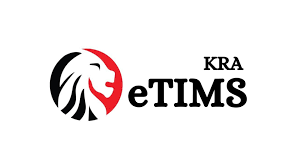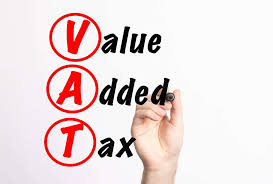Taxpayer record-keeping is the practice of maintaining accurate and organized financial records to support your tax filings and ensure compliance with tax laws and regulations. It involves keeping detailed records of income, expenses, deductions, and other financial transactions throughout the year.
Taxpayers must ensure they possess verifiable evidence for all transactions affecting their tax obligations. Neglecting record-keeping carries significant repercussions, as evidenced by court judgments. It is imperative for taxpayers to maintain meticulous records and consider engaging professional accountants to navigate their tax responsibilities.
Tax Procedures Act
The Tax Procedures Act (TPA) commenced on January 19, 2016, with the objective of establishing standardized processes to ensure consistency and effectiveness in tax law administration. It strives to simplify tax compliance for individuals and entities, while enhancing the overall collection of taxes through efficient methods. The Tax Procedural Act (TPA) serves to unify and streamline tax procedural rules, including record-keeping requirements. Previously, various tax laws like the VAT Act 2013, Income Tax Act, and Excise Act dictated different timeframes for record retention by taxpayers. The TPA standardizes this duration to five years. As a recent addition to tax legislation.
Electronic Tax Invoice
The Finance Act of 2023 ushered in a pivotal change with the introduction of section 23A, empowering the Commissioner with the jurisdiction to institute an electronic tax infrastructure for the issuance of tax invoices and the management of stock records. Under this provision, all entities engaged in business activities, irrespective of residency status, will be mandated to utilize the electronic platform for invoicing purposes and for the upkeep of their stock documentation. This signifies a significant shift towards modernization and efficiency in tax administration, streamlining processes and enhancing transparency in compliance efforts. Once enacted, the electronic tax system will serve as the cornerstone for tax documentation, offering a seamless and standardized approach for businesses to fulfill their fiscal obligations.
Consequences on failure to keep records; case law
When taxpayers fail to maintain accurate and comprehensive records, the ramifications can extend far beyond mere inconvenience. Inadequate record keeping not only poses significant challenges for individuals or businesses in meeting their tax obligations but can also lead to serious consequences ranging from penalties and fines to legal ramifications.
In the case of Muga Developers Ltd, whose principal shareholder is the Suraya Property Group Limited, an audit conducted by the Kenya Revenue Authority (KRA) discovered that Muga Developers Limited failed to disclose income generated from unit sales, misrepresented their gross turnover, and neglected to submit corporate income tax returns spanning from 2014 to 2017. Upon being notified of these discrepancies, the developer promptly approached the KRA and requested to rectify the situation by submitting the overdue tax returns, a request which was granted.
Subsequent to the submission of the tax returns, the KRA evaluated the developer’s financial records and determined that an additional tax liability amounting to KShs. 3.5 billion was owed for the aforementioned period. Acknowledging the seriousness of the situation, the developer sought permission from the KRA to contest the newly assessed tax liability. This request was accommodated, but the developer was tasked with providing comprehensive documentation, including detailed tax computations, trial balances relating to both management and final accounts, gross revenue accounts, debtor and creditor ledgers, cash books, revenue recognition accounts, and any other pertinent records or reconciliations.
Judgment
In essence, the developer was required to furnish a wide array of financial documentation to support their late objection to the additional tax assessment. These documents were deemed crucial by the KRA in order to thoroughly review the developer’s financial affairs and validate the accuracy of the tax computations. By granting permission for the late objection and specifying the requisite documentation, the KRA aimed to ensure transparency and accountability in the resolution of the tax dispute. Even though the taxpayer was given the chance by the KRA to furnish tax records in support of its objection to the tax assessments, it neglected to provide all the necessary documents and instead opted to appeal to the Tax Appeals Tribunal (TAT) which ruled in favor of the developer. On May 19, 2022, the High Court ruled that the developer had not complied with tax laws by failing to provide necessary documents to challenge the additional assessments, penalties, and interest imposed by the Kenya Revenue Authority (KRA). The court emphasized that when KRA issues additional assessments based on filed tax returns, the burden shifts to the taxpayer to refute the Commissioner’s decision.
The court has allowed the taxpayer a period of sixty (60) days starting from the date of the judgment to provide the Kenya Revenue Authority (KRA) with the requested documentation and information. Failure to comply will result in the KRA taking steps to collect the assessed amount of Kshs. 3.5 billion.
Using the services of a professional accountant for record keeping
Having a professional accountant can be immensely beneficial for taxpayers for several reasons:
- Tax Compliance: Tax laws and regulations can be complex and ever-changing. Professional accountants are well-versed in tax codes and can ensure that taxpayers comply with all relevant laws, minimizing the risk of errors or oversights that could lead to penalties or audits.
- Maximizing Deductions and Credits: Accountants are trained to identify all eligible deductions and credits that taxpayers may qualify for, thereby minimizing their tax liability and maximizing potential refunds.
- Financial Planning: Accountants can provide valuable advice on financial planning strategies to help taxpayers make informed decisions about investments, retirement planning, and other financial matters.
- Audit Support: In the unfortunate event of an audit by tax authorities, having a professional accountant can provide peace of mind. They can represent taxpayers during the audit process, ensuring that their rights are protected and helping to resolve any issues that may arise.
- Time and Stress Saving: Handling taxes can be time-consuming and stressful, especially for individuals with complex financial situations. Hiring a professional accountant allows taxpayers to offload this burden, freeing up their time to focus on other aspects of their lives or businesses.
- Risk Management: Accountants can assess financial risks and provide advice on how to mitigate them, helping taxpayers make more informed decisions to protect their financial interests.
- Business Guidance: For taxpayers who own businesses, accountants can offer valuable guidance on financial management, budgeting, cash flow analysis, and other aspects of business operations to ensure long-term success.
The importance of a taxpayer maintaining meticulous records and engaging a professional accountant cannot be overstated. These practices not only ensure compliance with tax laws but also optimize financial management and decision-making. A taxpayer’s records serve as a crucial foundation for accurate tax filings, reducing the risk of audits or penalties.
Conclusion
A skilled accountant provides expertise in tax records keeping, navigating complex tax regulations, maximizing deductions, and minimizing liabilities. The joint strategy of having meticulous records and professional guidance empower a taxpayer to effectively manage their finances, achieve regulatory compliance, and secure their financial future. FHC provides tax accounting services to discerning taxpayers, reach out to us today.











